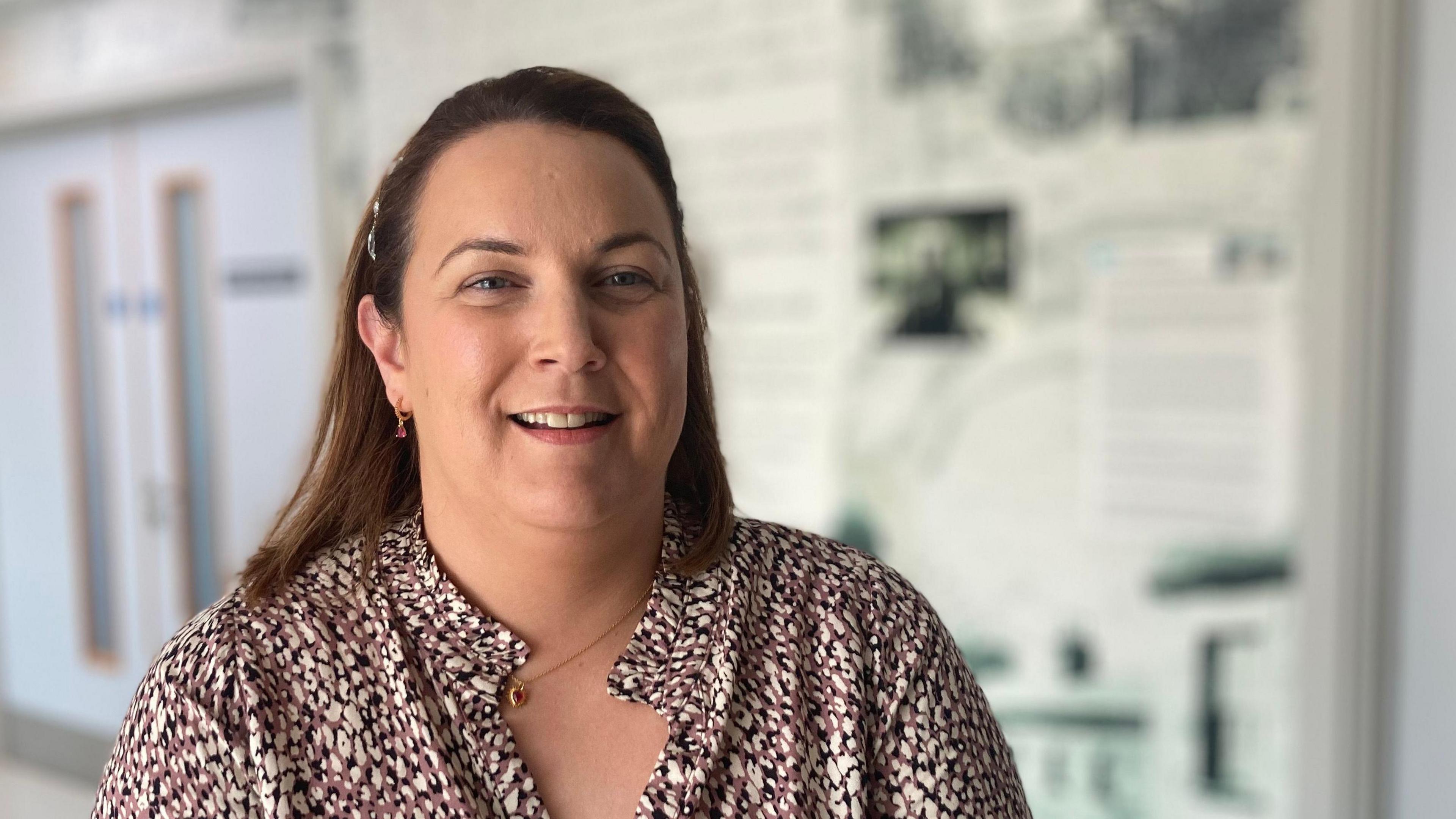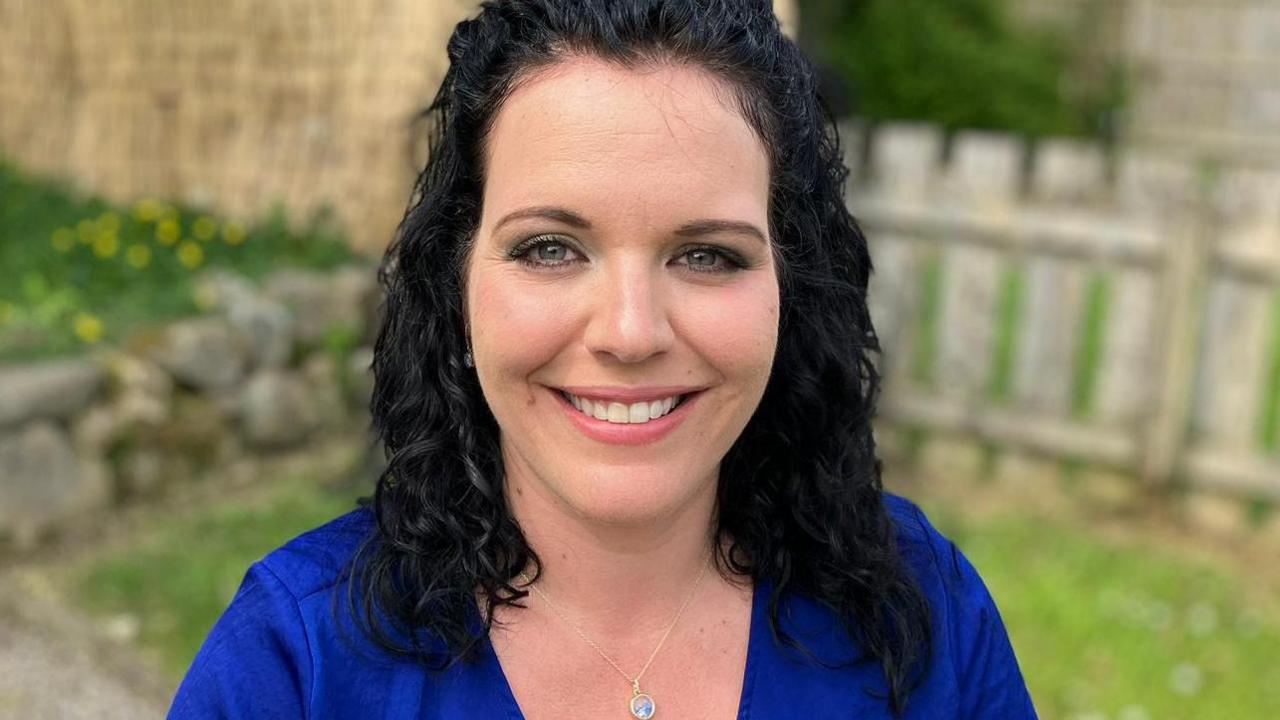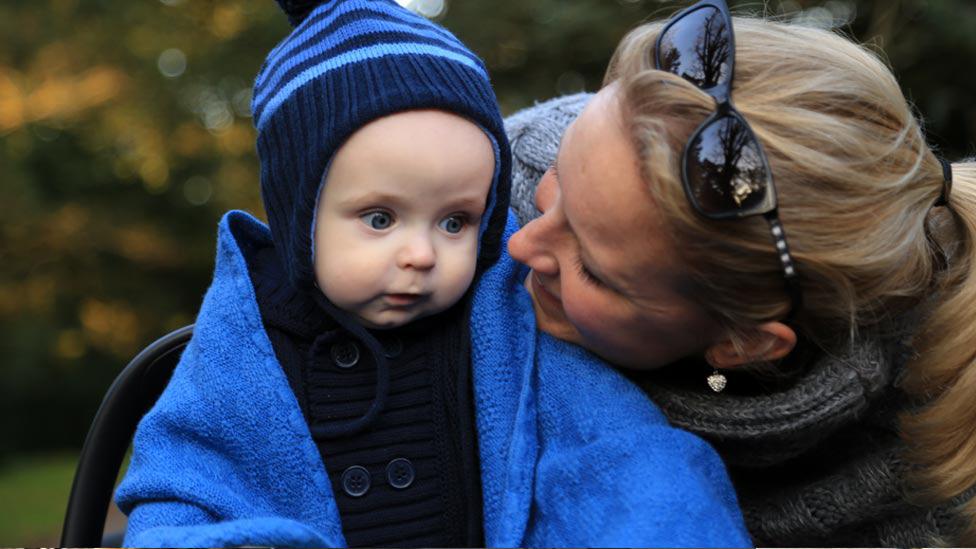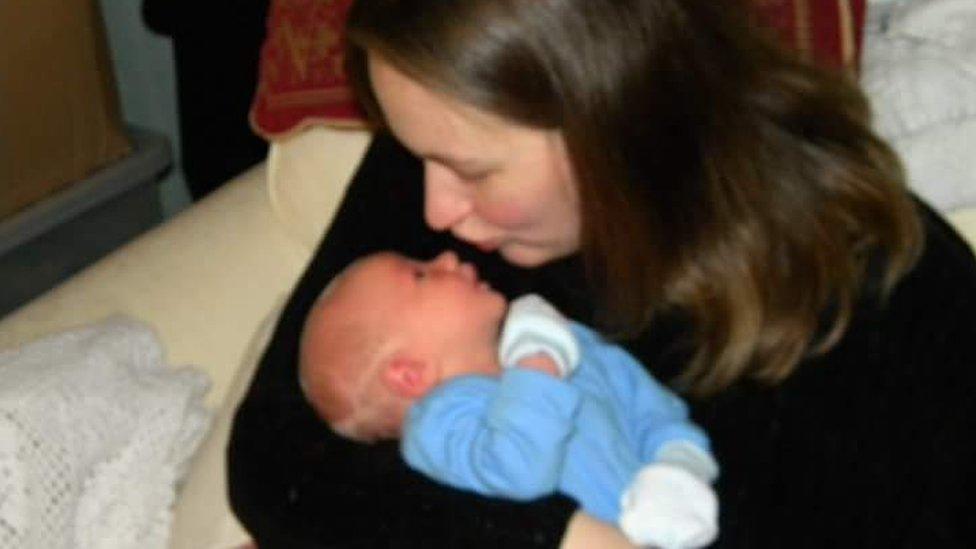Postnatal anxiety left politician 'unrecognisable'
Claire Sugden says her anxiety spiralled rapidly in the weeks after her daughter's arrival
- Published
In the months after giving birth to her first child, struggling with a severe anxiety disorder left Claire Sugden "unrecognisable" as a person, she says.
The former justice minister has said she wants to speak publicly about her experience with postnatal anxiety as she does not want any other parent to experience what she did.
The independent MLA for East Londonderry welcomed her daughter Indy with husband Andy in May 2023.
She said she was prepared for the newborn stage to be difficult, but her anxiety spiralled rapidly in the weeks after Indy's arrival which led to her having irrational fear or worry over everyday events.
"I really struggled to function. I was always worried that something was going to happen to her," Sugden told BBC Radio Foyle’s North West Today programme.
"In my head I manifested situations - which in reality were very unlikely," she said.
"If I was walking down the stairs, I would imagine that Indy was going to jump out of my arms.
"It was really difficult travelling in the car with her, I was worried about oncoming traffic and that we were going to have a horrific accident.
"If there was so much as a tiny speck on the baby, I would imagine the worst in terms of illness. I would be in tears.
"The anxiety made me reluctant in those first few months to go out anywhere.
"Every day was hard."
What is postnatal anxiety?
According to the National Health Service (NHS), as well as postnatal depression, a number of other mental health conditions can also develop after giving birth - as well as during pregnancy.
These include:
anxiety disorders - including generalised anxiety disorder (GAD), social anxiety, and post-traumatic stress disorder (PTSD)
obsessive compulsive disorder (OCD) – intrusive, unwanted and unpleasant thoughts, images or urges that repeatedly enter a person’s mind, causing them anxiety and leading to repetitive behaviours
Health charity Mind says perinatal anxiety is anxiety that you experience before or after giving birth.
If it is while you are pregnant, this is antenatal or prenatal anxiety. If it is in the year after giving birth, this is postnatal or postpartum anxiety. Some people may experience both.
What are the symptoms of anxiety?
People who are living with anxiety can experience a wide range of symptoms including:
A churning feeling in your stomach
Feeling light-headed, dizzy or restless
Faster breathing
Sweating or hot flushes
Feeling tense, nervous or unable to relax
Feeling like the world is speeding up or slowing down
Feeling like you can't stop worrying
'I couldn't eat'
Sugden said she had lived with what she described as "low-level anxiety" since she was a teenager and had always been able to manage the condition but what she was experiencing after having her baby felt very different and took a severe toll.
"Within a month of giving birth, I lost two stone. I couldn't eat," Sugden said.
"I think at the time I didn't see what was happening to me even when people around me were suggesting getting support," she said.
"I was reluctant and resistant to help as I felt this what being a new parent was like.
"But looking back now, I very much didn't recognise the person I was in those first few months.
"I had a really fantastic health visitor who recognised what was happening wasn't right and she advised I get some extra support.”
Sugden said the intervention by health professionals was, for her, transformational and she is now doing well.
Spotting the signs of postnatal anxiety

Dr Maggie Kelly says it is OK to ask for help
Dr Maggie Kelly is a consultant psychiatrist who works with the perinatal mental health team at the Western Trust.
She said it was vital for family members to be aware of behaviour that appeared out of character for a new parent.
"We are seeing a lot of women with similar difficulties that have then been offered intervention and have been able to go forward with their lives and their babies," Dr Kelly said.
"It is okay to ask for help, if you are feeling different or presenting with new symptoms then confide in someone you trust in the first instance," she said.
"We rely so much on what family members see.
“Families know their partner, daughter, sister so when they see signs of different behaviour, they should have a low threshold for suspicion.
“If you know a new mum that’s acting different then it's about asking for help and seeking that out.”
Early intervention
Dr Kelly said there was evidence that suggested anxiety conditions like GAD, OCD and PTSD have a higher rate of occurrence in the perinatal population compared to the general population.
"It is a vulnerable time, we don't want to make mums more anxious, but the key is early intervention," she said.
“It means that the prognosis is much better."
Claire Sugden said since addressing her anxiety, she had never felt happier and wanted to speak out about her experience, so others know there is hope.
"We talk a lot about postnatal depression, we don't talk about postnatal anxiety and therefore people don't recognise it and assume it’s a new part of motherhood," Sugden said.
"Worry will be with you for the rest of your life as a parent. But what I had was a very severe form of anxiety which needed support.
"My message to anyone feeling the same is, you don't have to feel like this. There is support there.
"You can come out the other side being able to enjoy your baby and your life."
Related internet links
- Published23 May 2024

- Published4 May 2018

- Published6 December 2017
